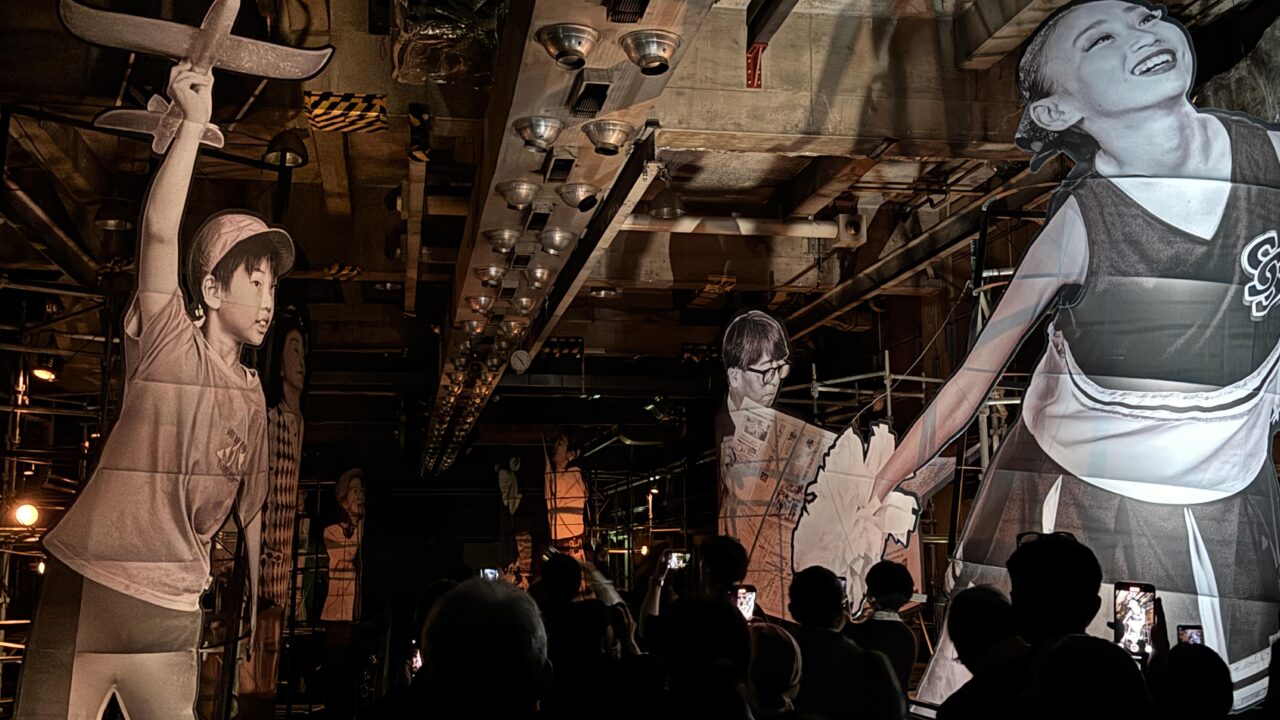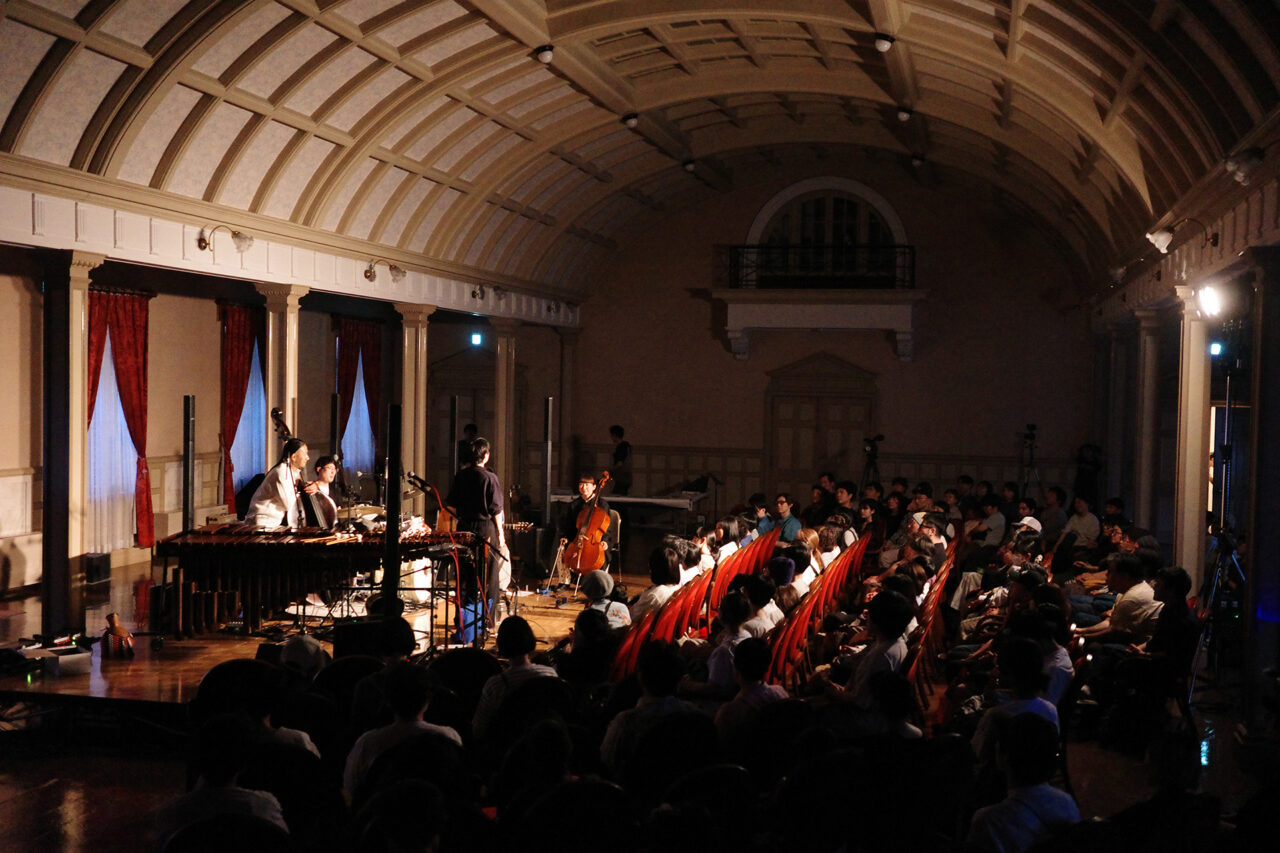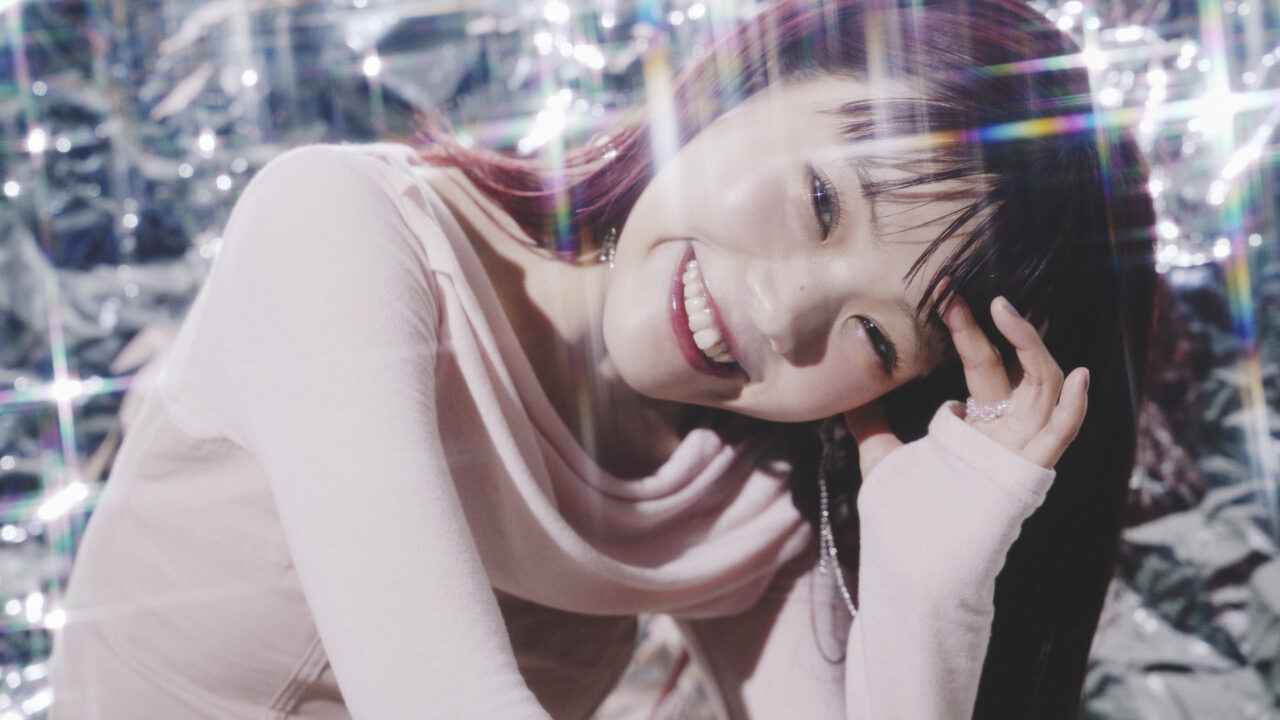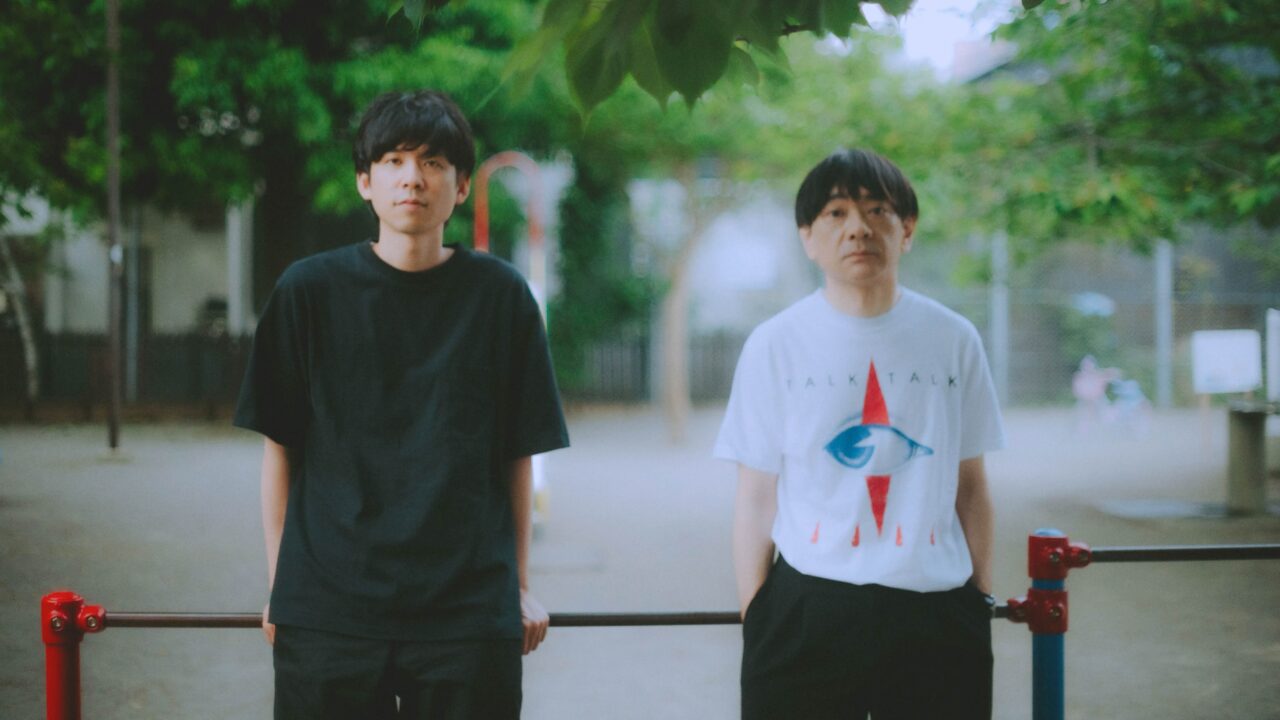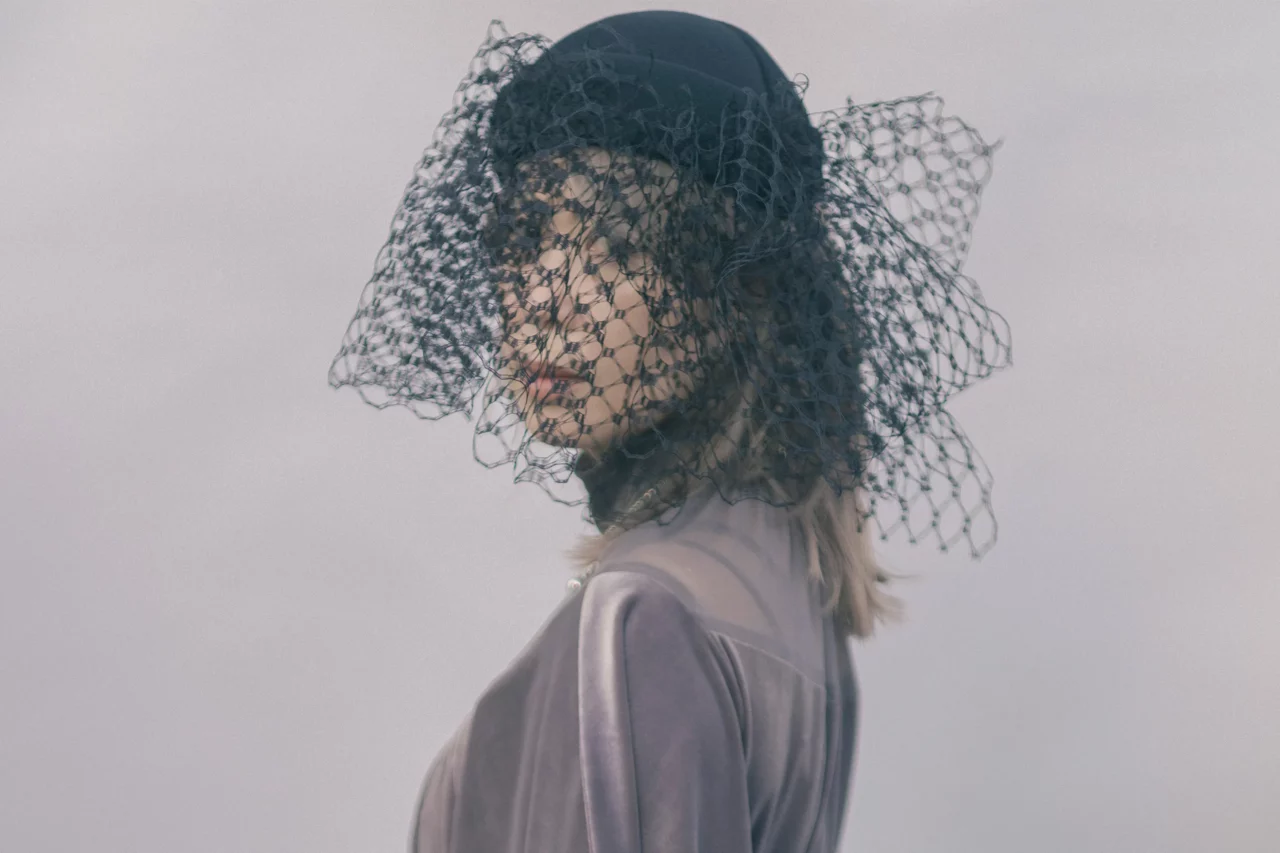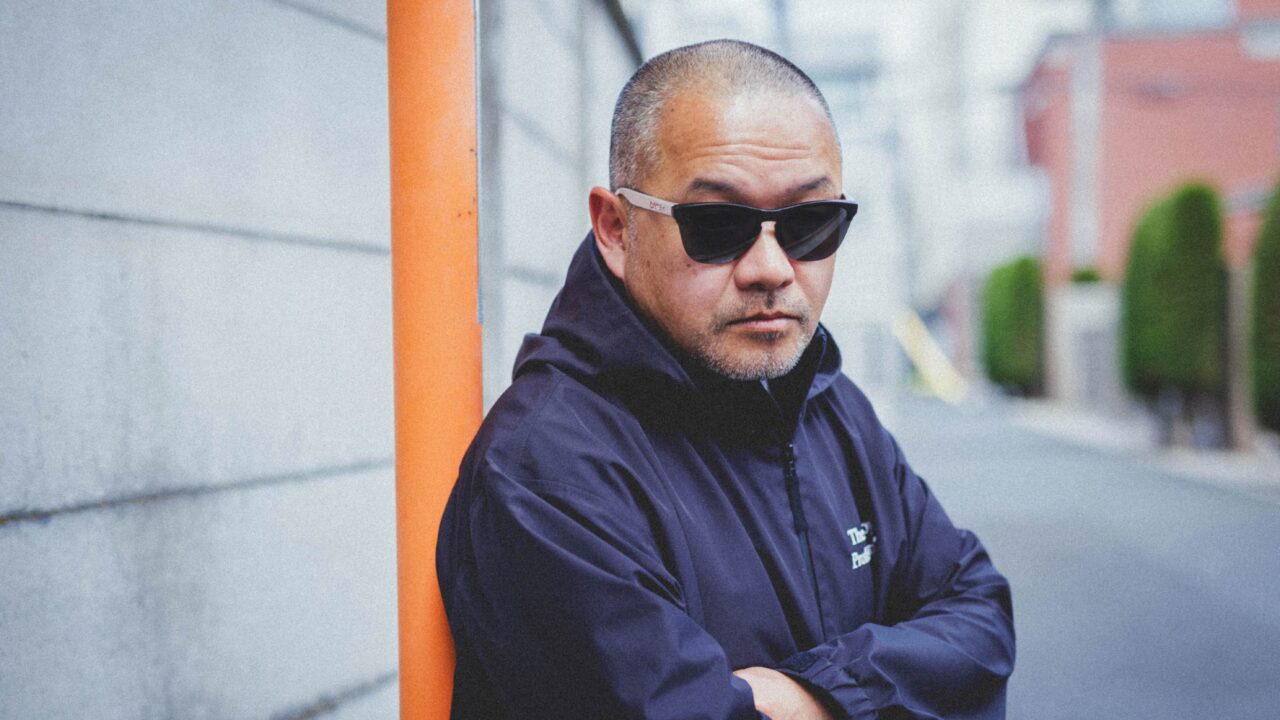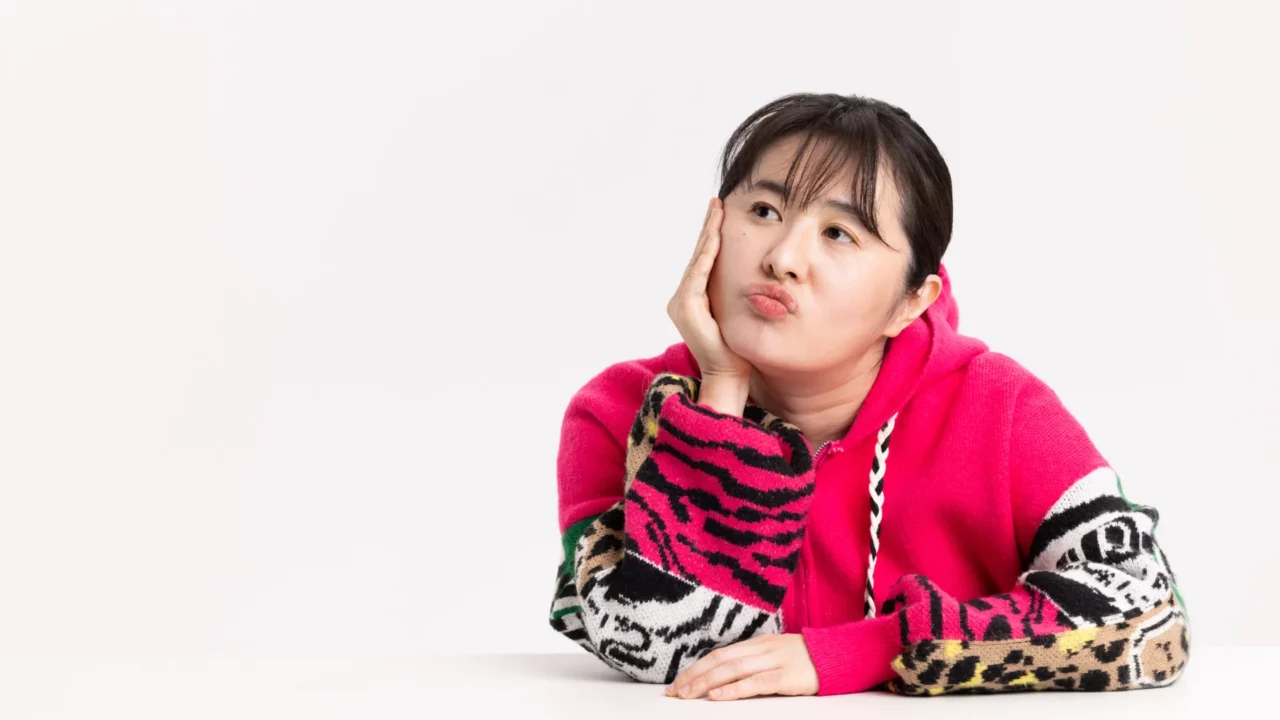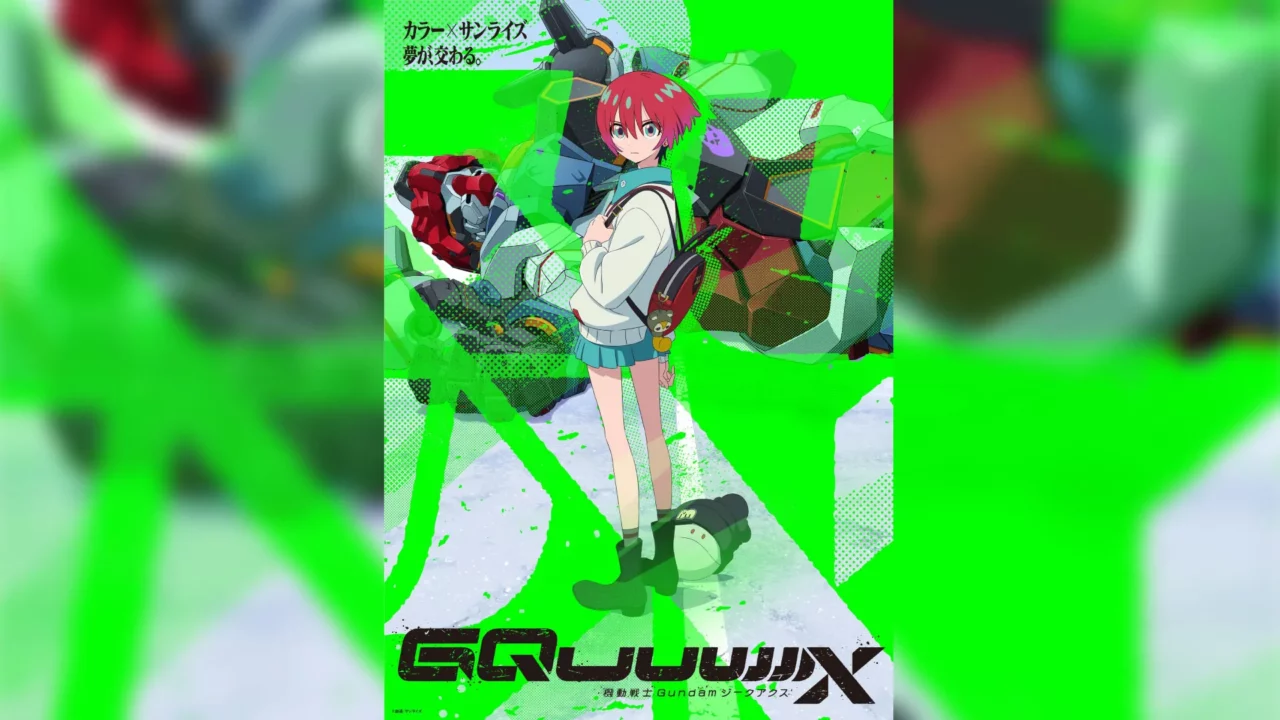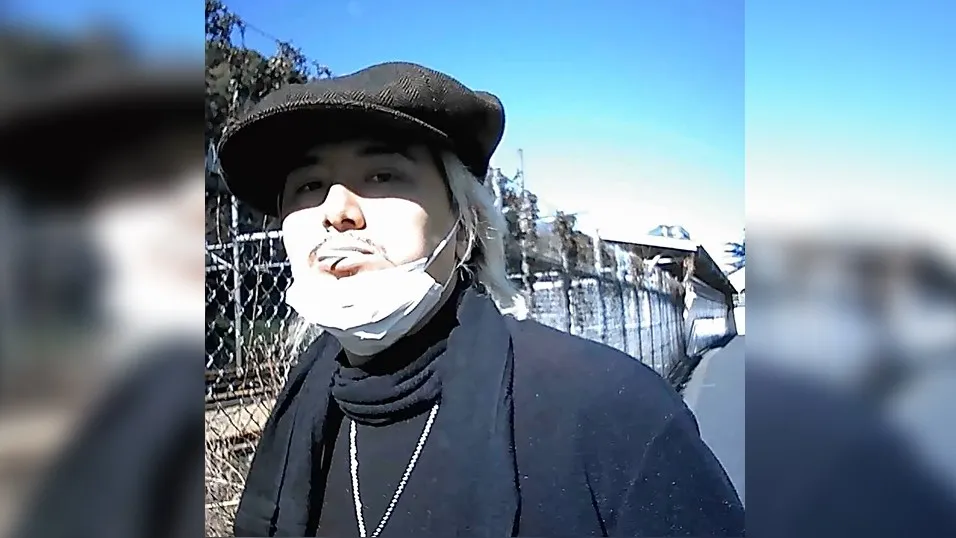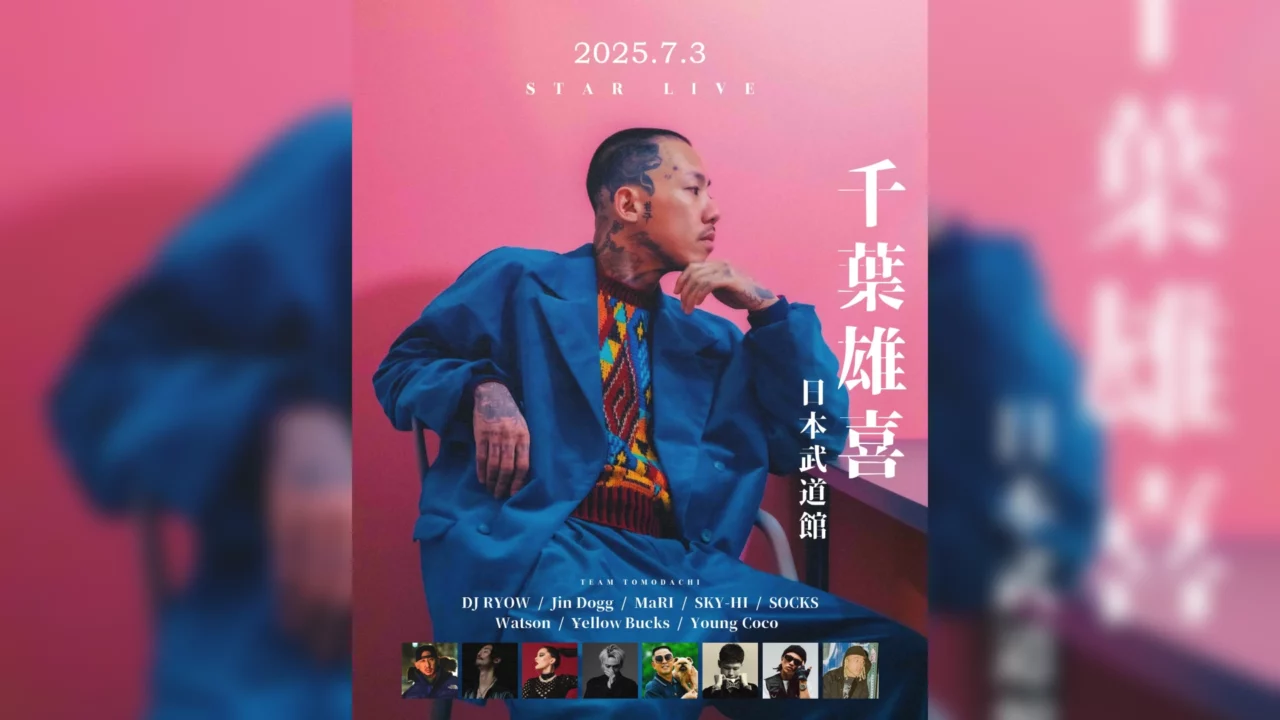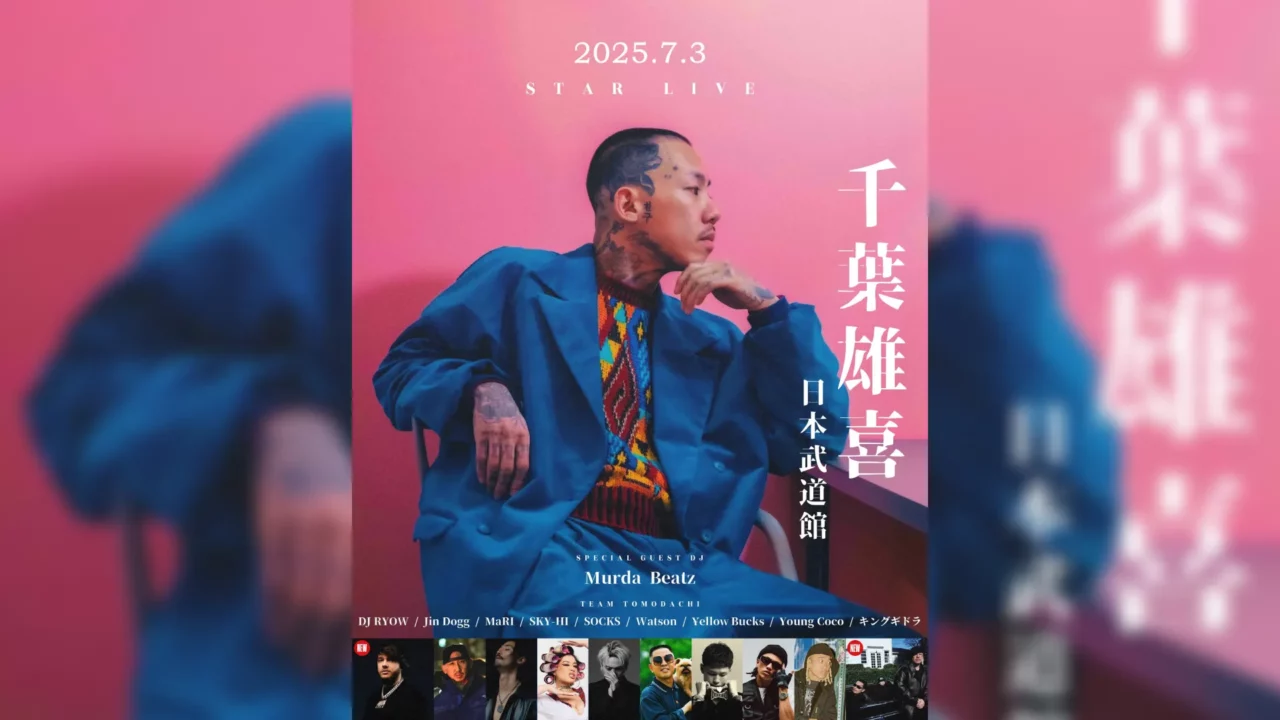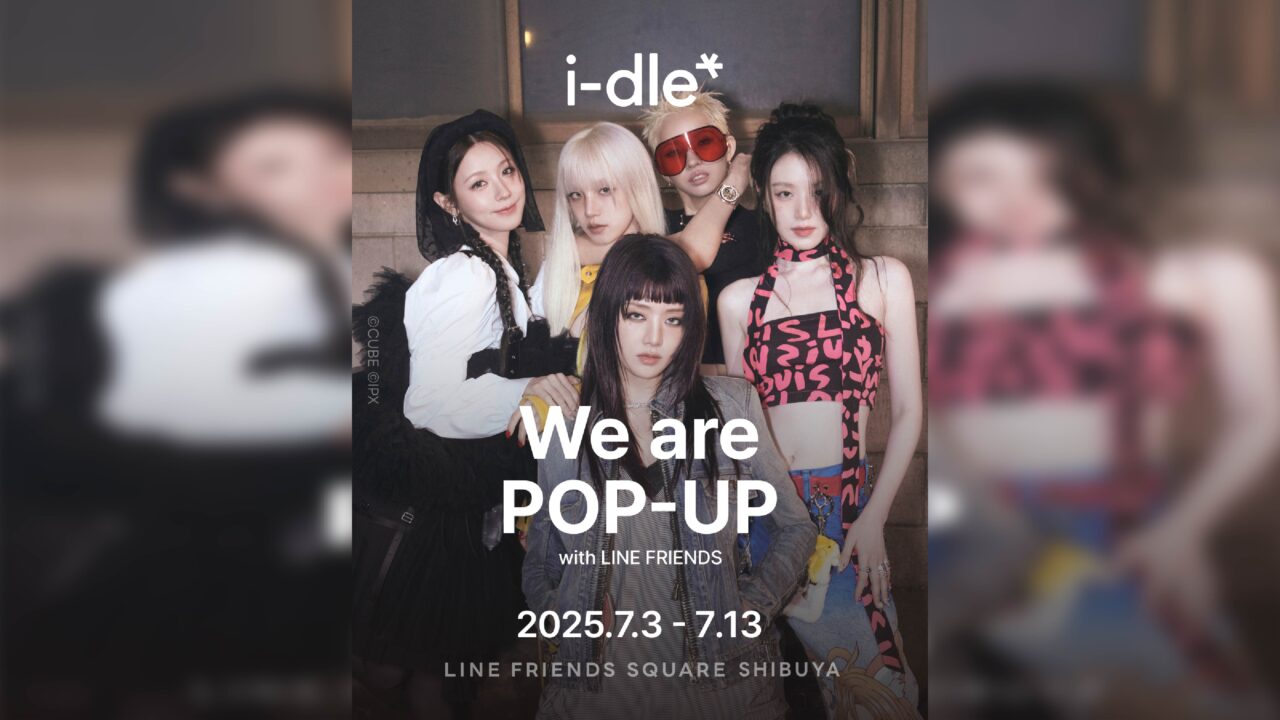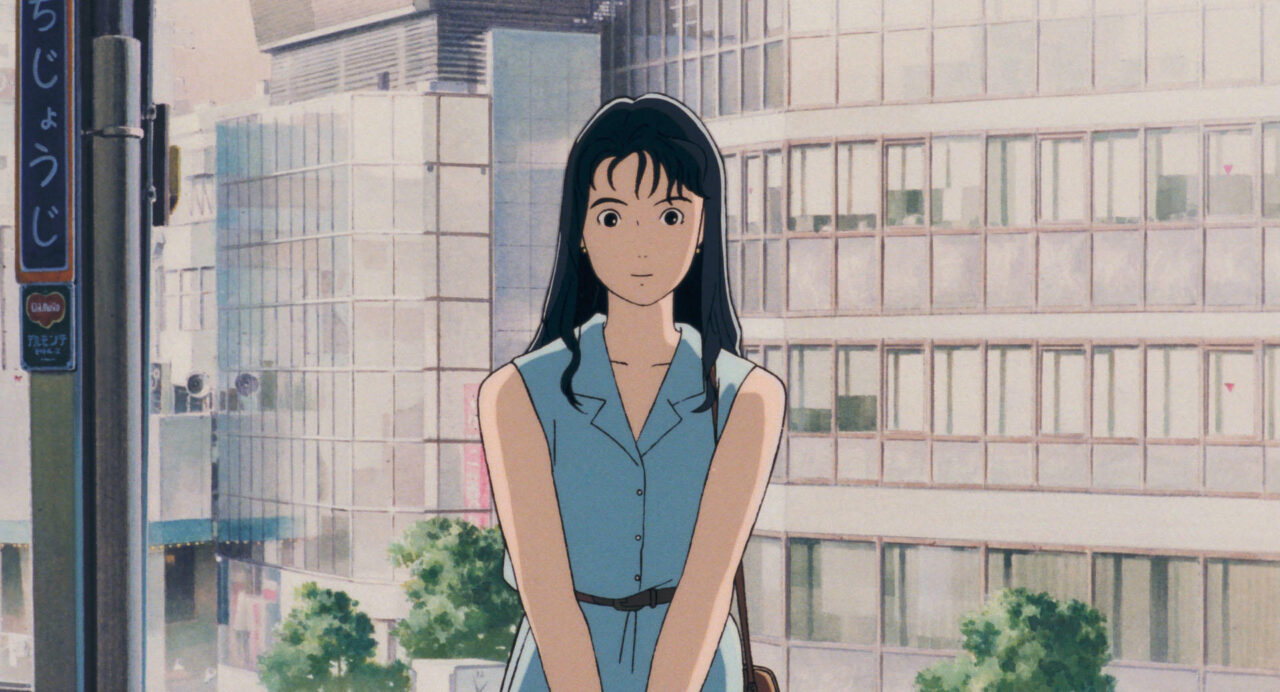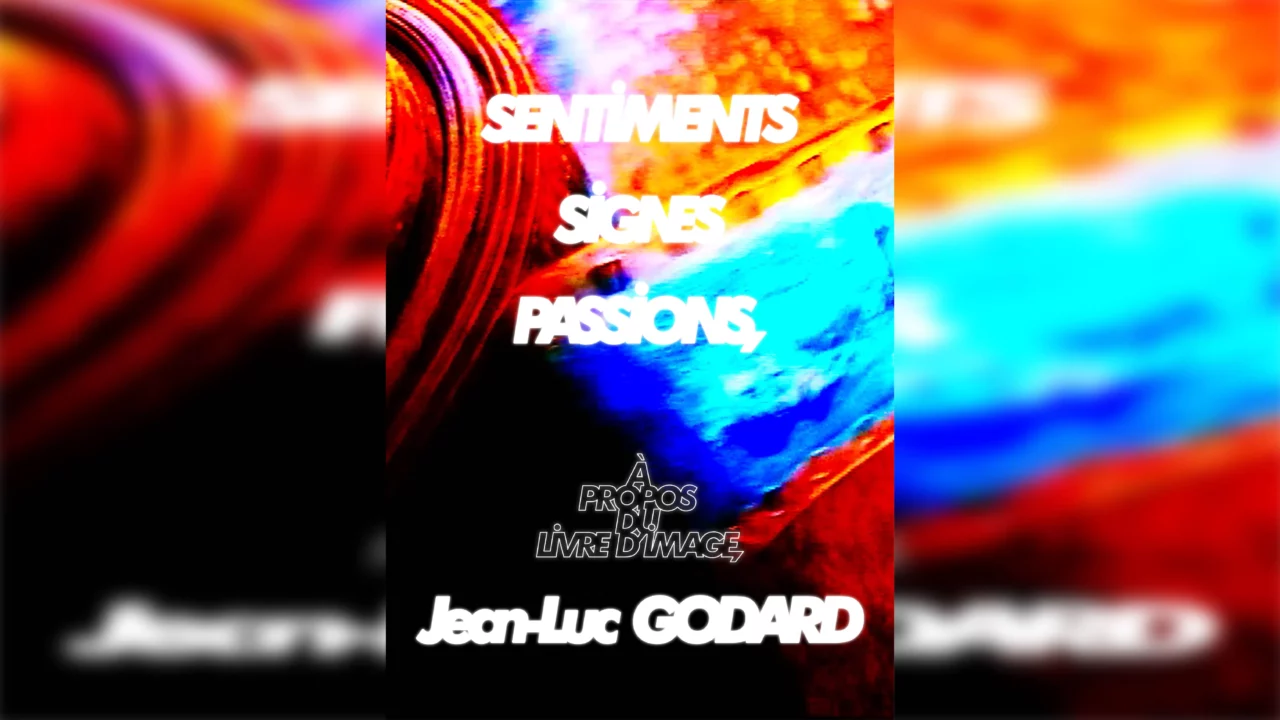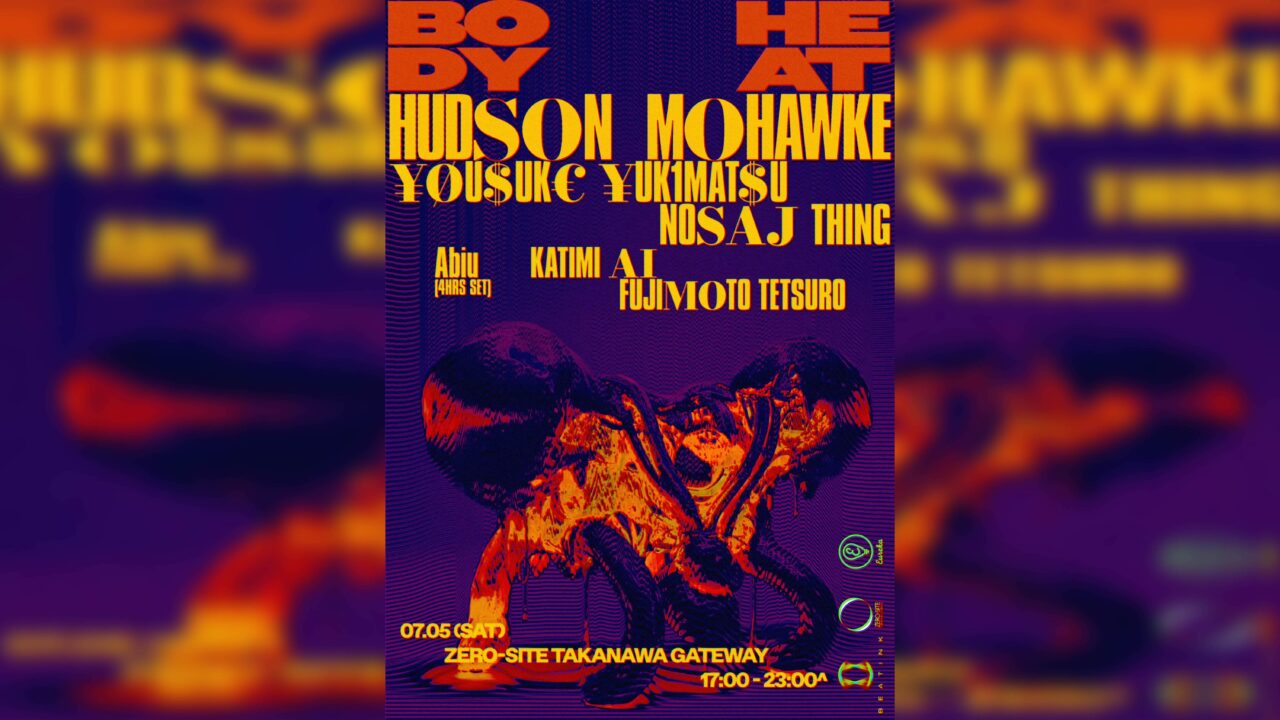Kyoto, a city nurtured by the intersection of various cultures. In this city, there are artists who have encountered each other. They are drummer and improvisational soloist Konagawa Kokoro, and contemporary artist Yahata Aki, who works with installations mediated by video. Though both are expressionists, they have been active in different genres, and their meeting occurred in 2022. Yahata was searching for a place to learn drumming, wanting to incorporate the element of drums into his video expressions, when he happened to come across Konagawa’s website offering drum lessons.
The relationship between these two, who have not yet known each other for even two years, is incredibly rich. After producing the music video for Konagawa’s solo work “cosmic circle,” Yahata began to handle the filming of the music Konagawa was involved in. Then, in June 2024, an experimental program titled “Improvisation and the Fringe: Experiment 1” was held at the Kyoto Art Center, featuring Konagawa as the drummer. The two chose the Kyoto City Kyocera Museum of Art as the venue for their dialogue, a place each has ties to. Konagawa has performed live with his band kott at the museum café ENFUSE, while Yahata has exhibited his work at The Triangle. Through the words exchanged in this artistic space, it became clear that they embody a way of life as expressionists unbound by the constraints of capitalism and business.
INDEX
The Genesis of a Relationship Through Skill Exchange
To start, could you tell us how you two first met?
Yahata: I was searching for a good drum teacher because I wanted to start learning, and I came across Konagawa’s profile on Google. It really stood out—it mentioned things like Thai massage, Aikido, and Eastern medicine, all alongside drumming. Since my approach to art is also quite interdisciplinary, I felt there was a similarity. But sometimes, when things seem too similar, there’s a slight disconnect that can make working together challenging.
Kokawa: Yeah, when things are too alike, it can create a kind of avoidance.
Yahata: Right. I was skeptical about whether I’d really get what I needed, but I decided to give it a try and went to the lesson.
Kokawa: One thing that really stuck with me was when Yahata came in for the trial lesson and said, “What can you teach me? Show me,” and that left a strong impression on me.

Born in Kyoto in 1984 and currently residing there, Konagawa began playing drums in middle school. After performing as the drummer for the band jizue, he is now active as a solo artist. His career includes a solo tour in Southeast Asia and collaborations with domestic artists. In 2020, he produced and released his first solo album ANIMA, in collaboration with artists such as Shun Ishiwaka, Masanao Matsushita, and Kei Yamamoto. From 2021, he has been energetically involved in a duo unit with didgeridoo player GOMA, as well as in the Kyoto experimental band “kott,” with which he performed at FUJI ROCK FESTIVAL 2023. In 2024, he released his second solo album touch the sub conscious, featuring a collection of renowned top players.
Yahata: No, no, I’m pretty sure I didn’t say anything like that. Please don’t distort the facts just to make the article more entertaining! [laughs]
Kokawa: [laughs] But you probably said something close to that, and I thought, “Wow, someone really interesting has come in.”
Yahata:I was seriously in need of a drum teacher at the time. I suddenly had this realization like, “Drumming is the heartbeat of humanity!” and felt I had to incorporate it into my work.
Kokawa:That sense of seriousness really came through. So, from my perspective, my first impression was, “I’ve found the perfect person!”

Born in Tokyo in 1985 and currently residing in Kyoto. After completing a master’s degree in New Media at Tokyo University of the Arts Graduate School, Yahata withdrew from the doctoral program and later graduated from the School of Medicine at Shiga University of Medical Science. In 2020, he established HENKYO.studio in Kyoto. As a contemporary artist, he creates interdisciplinary art based on field research and interviews, primarily using video and installation as his mediums. His work explores the concept of “fringes” (geographical, social, and physical). Recently, he has focused on themes such as “hand-eating” and “road movies.” He is also the founder and editor of the website Te-shoku, an online archive documenting hand-eating cultures around the world.
Yawata:At that time, I was worried about the lesson fees piling up, so I mentioned it to him, and he said something like, “If it’s interesting, we could also exchange expressions instead.”
Kokawa: Yeah, we started with a skill trade. I’d teach him drums, and in return, he’d shoot videos for me.
Yawata:Kokawa was looking for someone to film the music video for cosmic circle, and I happened to want to incorporate drums into my video work, so I thought, “That sounds interesting!” From there, we ended up creating a lot together.
Kokawa:You’ve filmed the music videos for kott and the tour final, and also the release event for my solo album touch the subconscious at COTTON CLUB. We even applied to an open call at the Kyoto Art Center together and created a live performance piece.
INDEX
A Shared Drive: The Desire to Bring Joy as Artists
What did you feel after actually trying skill trade?
Yahata: Kokawa expresses himself through drums in the context of music, while I’ve been working with video in the context of art. Even though we seem to be doing completely different things in different fields, there are moments when it feels like we’re doing the same thing.
Kokawa:It’s rare to meet someone with the same level of intensity and seriousness about art. For me, the only criteria I use to evaluate anything is how much care and attention has been put into it. With her, you can see her dedication in every little move, even in something as simple as setting up a ladder.
For example, in the culinary world, it’s like Kyoto’s famous Kikunoi restaurant. When you dine at a top-tier establishment like that, you realize that expressing something and moving people is really about this level of craftsmanship and attention to detail.

Yahata: Even among fellow artists, there aren’t many people with whom, while talking, you can dive into the finer details. When we talk, the conversation naturally leads to areas of dedication that aren’t immediately visible on the surface.
Kokawa: You’re always putting effort into those details that no one else can see.
Yawata: With Kokawa, I sometimes feel that we might be able to reach places that are still unseen. When we did the live performance together at the Kyoto Art Center, based on the reactions we received from the audience, I felt like we might have glimpsed part of that potential. It’s not just about discussing things verbally; it’s a great joy to be able to materialize those ideas into works of art. When the work takes form and you receive feedback from others, you really feel the joy and significance of creating.
The Triangle Yahata Aki: Don’t Call it Beshbarmak, 2022
Kokawa: With Yahata, we share the same sense of joy in both creating and putting our work out into the world. There are a lot of artists who stop at self-satisfaction, but there aren’t many who are able to see how their work impacts society and interacts with it on a broader level.
Kokawa: I believe that the desire to “be of service to others” is at the core of creation. There’s a part of making that is for the audience and a part that is for self-satisfaction; the balance of these varies from artist to artist. With Yahata, our balance is similar, which makes it interesting.
Yawata: That’s true. I’m always thinking about the audience when I create my work.

INDEX
Yahata: Art is the Light of Hope in This World
Yahata: In my case, I feel that I have to create art that is necessary for human existence. Is that how you feel too?
Kokawa: Yes, I’ve always had that feeling. To put it simply, it’s my own meddling in the world. I’ve always been sharing the idea that living in a world where art opens up our sensitivity is surely wonderful and enjoyable.
Yawata: I also work in a medical setting, and when I was only familiar with the arts, I sometimes thought that no matter how much I said it was “for society,” it ultimately felt like it would end up being just ego-driven.
Going through that process, I’ve encountered situations in the medical field where modern medicine alone just can’t handle things. In those moments, I strongly believe that art is essential. So, I think there is definitely art that is necessary for humanity and that it’s not just mere ego. I believe Konagawa is also moving towards that direction.

Kokawa: Lately, I’ve been feeling a bit uncertain about that belief. In this civilization that seems to be going overboard with things like AI, I feel that people’s sensitivity to receive art is weakening. As I work in this environment, I often feel like I’m pushing against a curtain. Sometimes I wonder if art is truly necessary for humanity. But you, Yahata, you have this strong conviction about it, and that’s amazing.
Hachiman: Art is truly the hope of this world.
Kokawa: There aren’t many people who can say that with such certainty. For artists, having someone like you nearby is really a lifesaver.
Yawata: For me, “living” and “art” are absolutely inseparable. While being in the industry, I sometimes felt a growing disconnection between the two, but I believe we must always keep art close to the essence of life. I thought that when I saw your profile, you might be someone who operates with that understanding.
What do you think is the reason for the disconnection from your own feelings while being in the industry?
Kokawa: The enemy is capitalism.
Yawata: It’s a difficult situation. While it’s important to hold exhibitions as a job, the act of just doing exhibitions isn’t the essence of what we do. What’s more important is to continue creating works that are truly satisfying. However, sometimes the timing just doesn’t align. In my case, it became difficult to synchronize my studies in medicine, which I pursue as part of my artistic exploration, with my exhibition work. This led to misunderstandings that I was quitting art. Now, I’m back in a situation where I can physically focus on art again, and even with ongoing exhibitions, I can create joyfully in a way that makes sense to me. But especially when I was younger, there were times when I struggled to manage things well, and I was sensitive to that subtle disconnect. I think I often felt that disconnect as a separation between living and art.
Kokawa: The more serious you are about art, the more you hit those walls.
Living seems to encompass many elements. How do you both perceive the meaning of living?
Kokawa: I believe it’s about being of service to others. To truly help people through art, we must make our works as powerful as possible. Ideally, we could focus solely on strengthening our works. If we can be of service to others, then money will naturally follow, and we can sustain ourselves. I want to do that on a larger scale. I want to continually contribute something interesting to the world.
For example, even if you work in a supermarket, you’re still helping people. But I want to take it to a level that only an artist can reach and prescribe that… What do you think?

Yahata: For me, “living” often refers not just to my own existence but also to the lives of others—”people living.” It’s about what I can do while cherishing what is within my reach. I believe that the things closest to us are ultimately connected to those far away, so I think it’s important to engage with and create from the things that are close to us. I feel that art is what allows us to realize those transcendent connections across time and space.

Kokawa: To reach far, strength is needed. You could say it’s a universal power. Occasionally, there are works that possess that overwhelming force. If we can create works that touch on the essence of humanity, I believe they will fly even further.
INDEX
Discovering a Beautiful Justification for Making Money
Kokawa: I feel that Yahata is more pure as an artist, disregarding business considerations. Staying pure requires an immense amount of energy, and that’s something I really trust about her.
Yahata: In the past, I wasn’t interested in making a name for myself; I was at the opposite end of that spectrum. However, now I believe that to make the people involved with me and those who support my expression happy, and to ensure they receive fair compensation, I need to step into the spotlight to some extent and express my thoughts clearly.
While it may not be exactly business-related, I have experienced a shift in my perspective. I now actively engage with society and feel it’s important to communicate my ideas effectively.

Kokawa: I totally understand. When you do business solely because you want to become wealthy, it feels off. However, when you find a noble cause—like wanting to enrich the artists and stakeholders around you—then making money takes on a beautiful reason.
Yahata: If there are moments when I become obsessed with money, that’s the only reason: to truly make those around me happy.
Kokawa: It takes quite a while to find that balance.
Why do you think you’ve arrived at this “noble reason” of wanting to establish a business to help others?
Kokawa: Simply put, it’s because it weighs on my heart. When you recognize the value and genuinely want to pay for it but find yourself unable to, you realize you need to engage in business properly.
Yawata: I’ve come to see things more clearly; my actions are not just my own issues. I’ve seen cases where the compensation for artists is prioritized low, and I always want to change the undervaluation of the labor involved in expression and art as much as possible.
Kokawa: To do that, you have to brand yourself clearly in society, which can lead to unnecessary aspects of art coming into play. Artists trying to maintain their purity are likely always battling this contradiction. The more recognized you become, the more your influence grows in terms of what you can do for art, so finding this balance is challenging but essential.







